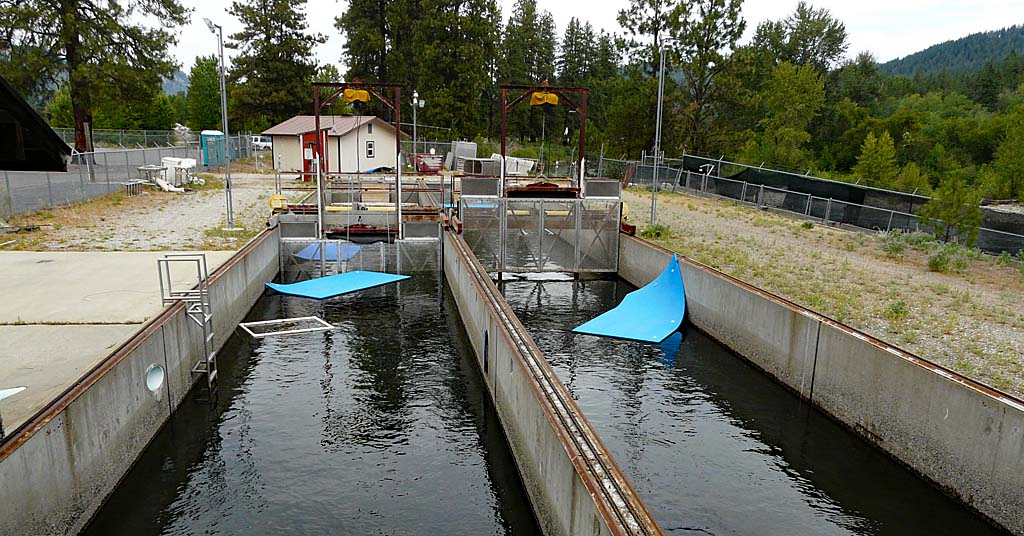Field | Paycheck Protection Program is the hope small businesses in Oregon need
Published 6:00 am Tuesday, June 16, 2020

- Field
During the past few weeks, I’ve been reading a lot about hope and its necessary role in healing, recovery and moving forward, not only as individuals, but as communities and a nation.
I’ve been talking to our local team about the role the Small Business Administration must have in providing hope to small business owners. This means being a local ally who listens, provides answers and connects small business owners with the resources they need to move their business forward.
Trending
This role also takes shape in the form of very tangible financial resources providing much-needed relief to businesses navigating uncharted waters.
Whether it’s a local manufacturer whose production and overseas trade has come to a halt, or a local restaurant who has transitioned from a bustling lunch crowd to a delivery service, or a small employer who is trying to balance a continuity of operations with employee safety — all of these stories and more have a direct impact on small business profits and their people.
Since the launch of the Paycheck Protection Program (PPP) April 3, more than 4.5 million loans worth $511 billion have been approved by the SBA. Here in Oregon, more than 58,000 small businesses and nonprofits have received $6.8 billion in forgivable PPP loans.
And with the recent passage of the Paycheck Protection Program Flexibility Act of 2020, small businesses can now extend the time they spend loan proceeds from eight weeks to 24 weeks, not worry about loan forgiveness if they are unable rehire employees as that limit has been removed, and expand the percentage of PPP funds they use for non-payroll expenses. As the name of the legislation states, this flexibility is good news and a sigh of relief for many local business owners.
The real impact of the PPP has certainly preserved thousands of important jobs in our state and kept the doors of tens of thousands of small businesses open. But this financial support goes beyond jobs and businesses. It has a positive impact on people, their families, and our communities. It provides some relief and hope.
For example, Bonnie Singer and Mary Beth Camp — co-directors of Music Together of Portland — have been running an early child development music program for more than 20 years. When the COVID-19 pandemic hit, the center had to stop teaching in-person classes at its seven locations and develop an online curriculum to keep families safe. However, spring semester enrollments went down dramatically, putting extreme pressure on Bonnie and Mary Beth to keep 18 teachers and staff employed.
Trending
After foregoing their salaries for a month in order to pay their team members, they applied for a PPP loan and were funded in early May, allowing Music Together to retain all its staff.
Bonnie told us the PPP allowed her and Mary Beth to tell their “amazing team of teachers and administrators” that they can pay them what they were expecting. She added that she “marvels at the community that we have and how we support each other through everything.”
Stories like Bonnie and Mary Beth’s bring me hope. And as we begin the transition into recovery, we need stories of hope more than ever. It’s easy to get bogged down by the weight of the economic challenges our local communities have been facing.
But I write to you, Oregonians, to say despite some bumps in the road, the PPP is working. It is keeping Oregonians employed. It’s keeping Oregon small businesses open. It’s bringing the hope our small business community needs.
And more good news. There is more than $130 billion in PPP funds still available for small businesses, independent contractors, nonprofits and tribal businesses. We know there are more people who can benefit from this forgivable loan program. I urge all who are eligible to connect with a local lender to apply for a PPP loan designed to provide economic relief to local enterprises.
While programs like the PPP — or SBA Loan Debt Relief or SBA Resource Partner business recovery assistance — are in direct response to the economic impact from COVID-19, it’s important to remember that business support doesn’t go away when the pandemic does. The SBA and its federal and local partners support small businesses at every stage of the business lifecycle — the highs, the lows, and everything in between.
The SBA has the privilege to work for small business owners whose grit creates two out of three net new jobs in the country. This is not the first economic hurdle entrepreneurs have had to scale and it won’t be the last. And the SBA will be there to support them every step of the way.









